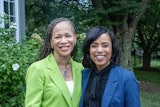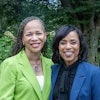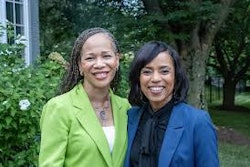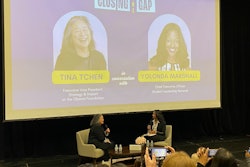PHILADELPHIA – A federal civil rights agency investigating possible gender discrimination in college admissions will subpoena data from more than a dozen mid-Atlantic universities, officials said Thursday.
The probe by the U.S. Commission on Civil Rights is focusing on whether some colleges favor men by admitting them at higher rates than women or by offering them more generous aid packages.
Commission members voted Wednesday to authorize subpoenas for 19 universities within a 100-mile radius of where the commission meets in Washington – the geographical extent of their subpoena authority.
The schools represent a mixture of sizes and include public, private, religious, secular, historically Black and moderately selective to highly selective institutions. There are six in Maryland, five in Pennsylvania, three in Washington, two each in Virginia and Delaware and one in West Virginia.
Women outnumber men nearly 60 to 40 percent in higher education nationally. The probe grew out of anecdotal stories that admissions officials are discriminating against women to promote a more even gender mix, said commission spokeswoman Lenore Ostrowsky.
Spokespeople for several schools on the list declined comment Thursday since they had not received the subpoenas.
Statistics from a few colleges on the list reveal varying percentages of men and women on campus.
Gettysburg College in central Pennsylvania, a highly selective liberal arts school, reports virtually an even gender split this year in its student body: 1,345 men and 1,338 women, according to its Web site.
The college’s ratio slightly favored women in each of the previous four years, with about 1,400 women and 1,200 men, the statistics show.
Data from last year at Georgetown University, a private, highly selective Catholic school in Washington, show a split of 54 percent women and 46 men in its population of about 7,100 undergraduate students. However, its graduate programs in business, law and medicine have more men.
The public University of Delaware reports undergraduate enrollment of 58 percent women and 42 percent men in each year from 2004-2008, according to its Web site.
Ostrowsky said if all schools cooperate and comply swiftly with the subpoenas, the agency could have a report out in six months. But some schools may not be able to produce the data quickly.
“The sort of information we are asking is going to take some time for the colleges to compile,” she said.
Ostrowsky would not specify what the subpoenas will request.
If the commission’s findings are “startling,” the agency could seek a wider sampling of data by meeting in a new location, thus changing the 100-mile radius of its subpoena authority, she said. Or the agency could simply ask schools to volunteer the information, Ostrowsky said.
Federal Title IX legislation, meant to promote gender equity, does not apply to admissions because lawmakers wanted to ensure the existence of women’s colleges, she noted.
The subpoenaed colleges are: Howard University, Lincoln University, Virginia Union University and the University of Maryland Eastern Shore, all historically black; Catholic University in Washington D.C., Loyola University in Maryland and Messiah College in Pennsylvania, all religious; Georgetown, Johns Hopkins and Gettysburg, all “highly selective”; the University of Richmond, considered “very selective”; York College in Pennsylvania, Goucher College in Baltimore, Goldey-Beacom College in Delaware and Washington College in Chestertown, Md., all private and “moderately selective”; and Shepherd University in West Virginia, Shippensburg University in Pennsylvania, the University of Delaware and the University of Maryland Baltimore County, all public and “moderately selective.”















